‘Word Craft’ at the Yorkshire Museum
By Ellen Waters
On July 9th the Yorkshire Museum hosted ‘Word Craft’, a University of York workshop based around medieval artefacts and creative experimentation, which sought to introduce York residents to the vast and exciting medieval history that simmers beneath the city. After a tour of the museum and many of its medieval artefacts, led by curator Emily Tilley, the workshop invited attendees to take part in activities delving into their connections to York and its heritage. Thanks to the marketing efforts of Lauren Cheetham-Birmingham and others, the group was an exciting mixture of ages and backgrounds, ranging from university students whose residency in York was fairly recent, to people who had lived in the city for most of their lives.
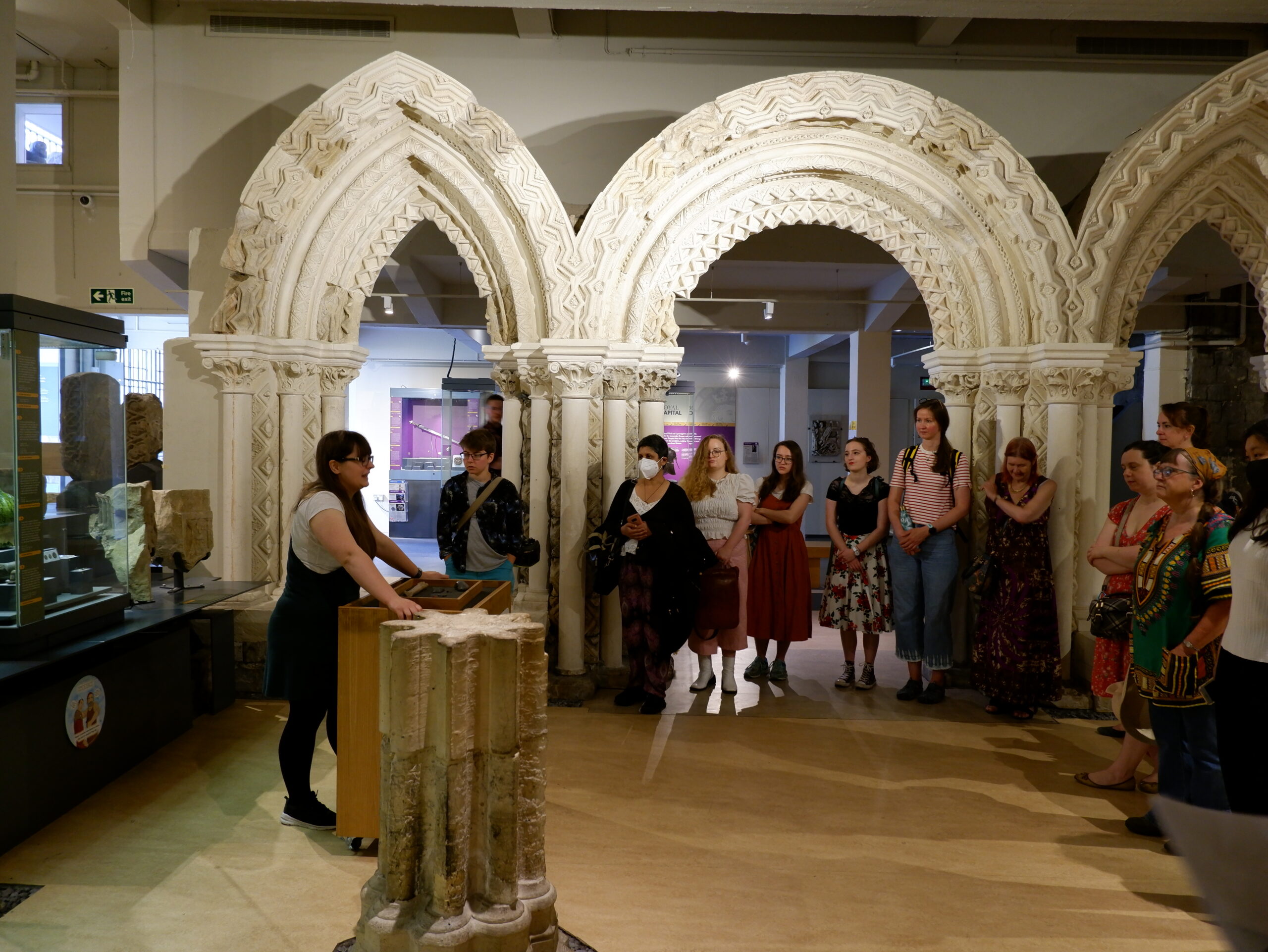
After an introduction by Fran Brooks, participants were asked to discuss their personal relationship with York, and one resident described it as “the closest thing to heaven on earth”, which unintentionally formed a perfect introduction to the first activity of the workshop, led by Cathy Jamieson. Through extracts from Book Seven of the ‘Pricke of Conscience’, Cathy encouraged us to think about the materialistic descriptions of heaven in the poem and what it means to live in a beautiful city, as well as the way in which wealthy medieval objects – including many introduced on the tour – may have been seen as small pockets of that attractive afterlife, alongside hinting at a practice of ‘buying your way’ into heaven.
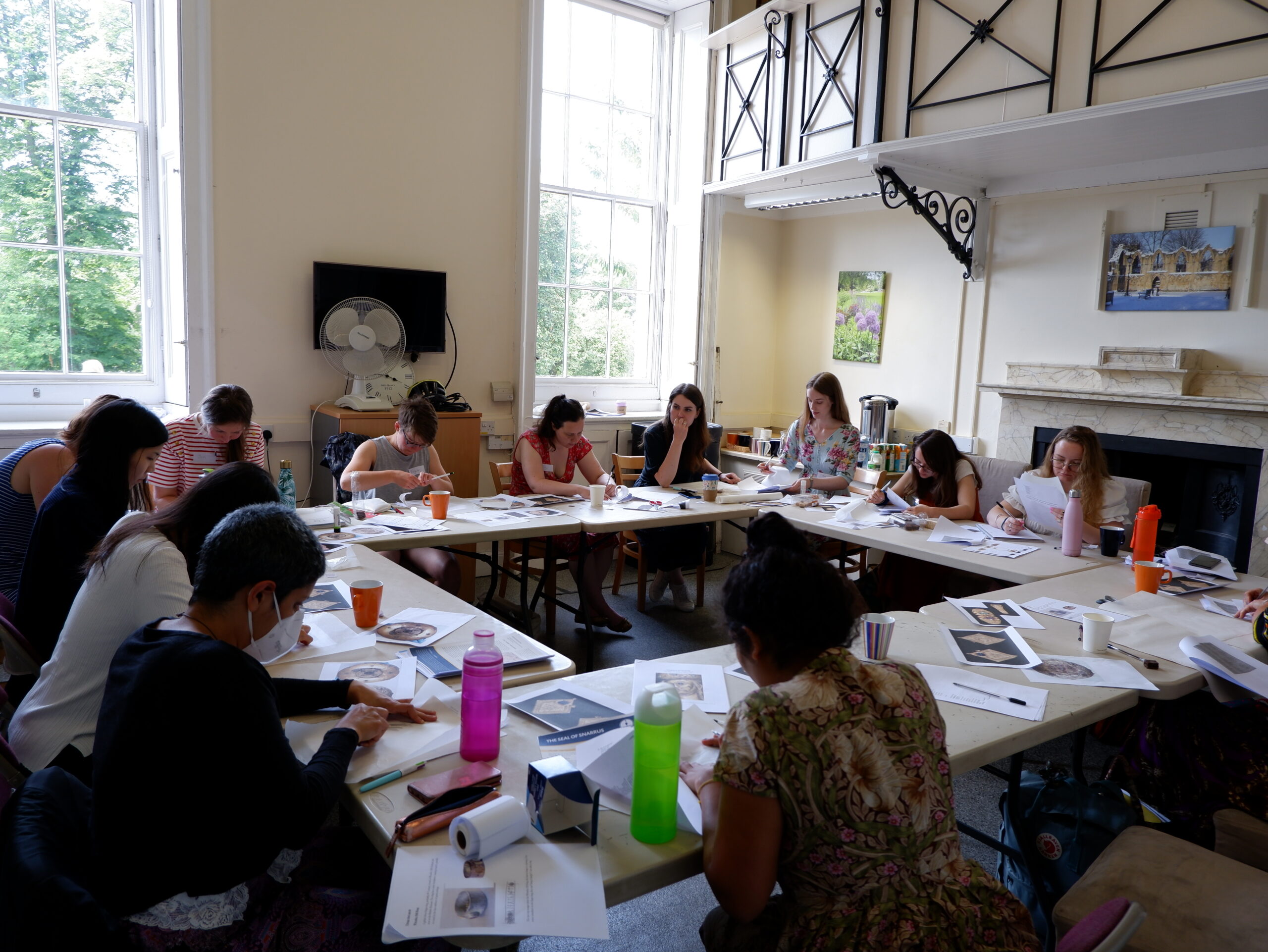
This was followed by Anthony Vahni Capildeo’s exploration of riddles, imagining the ‘voice’ of an artefact through allowing it to describe itself in verse. Participants were encouraged to produce a riddle for one of the museum objects introduced on the tour, with licence to be as playful or poetic as they chose, and many elements from these responses can be found in the collective poem below.
Finally, Becca Drake introduced the room to the history of the River Ouse, considering how its fluidity and versatile nature can be applied to poetry. To capture this sense of play, attendees were led to cover different texts with ‘ice’ (tracing paper) and ‘skate’ across the surface with their pen, discovering how, like the Ouse, they too could weave through the creative and historical tapestry of York’s past. A few museum objects, such as the ice skate which inspired this activity and a Viking iron, were available to handle over the course of the writing workshop; this provided an exciting physical link to the historical lives that were being discussed, even as the workshop attendees formed creative and emotional connections with York’s medieval past.
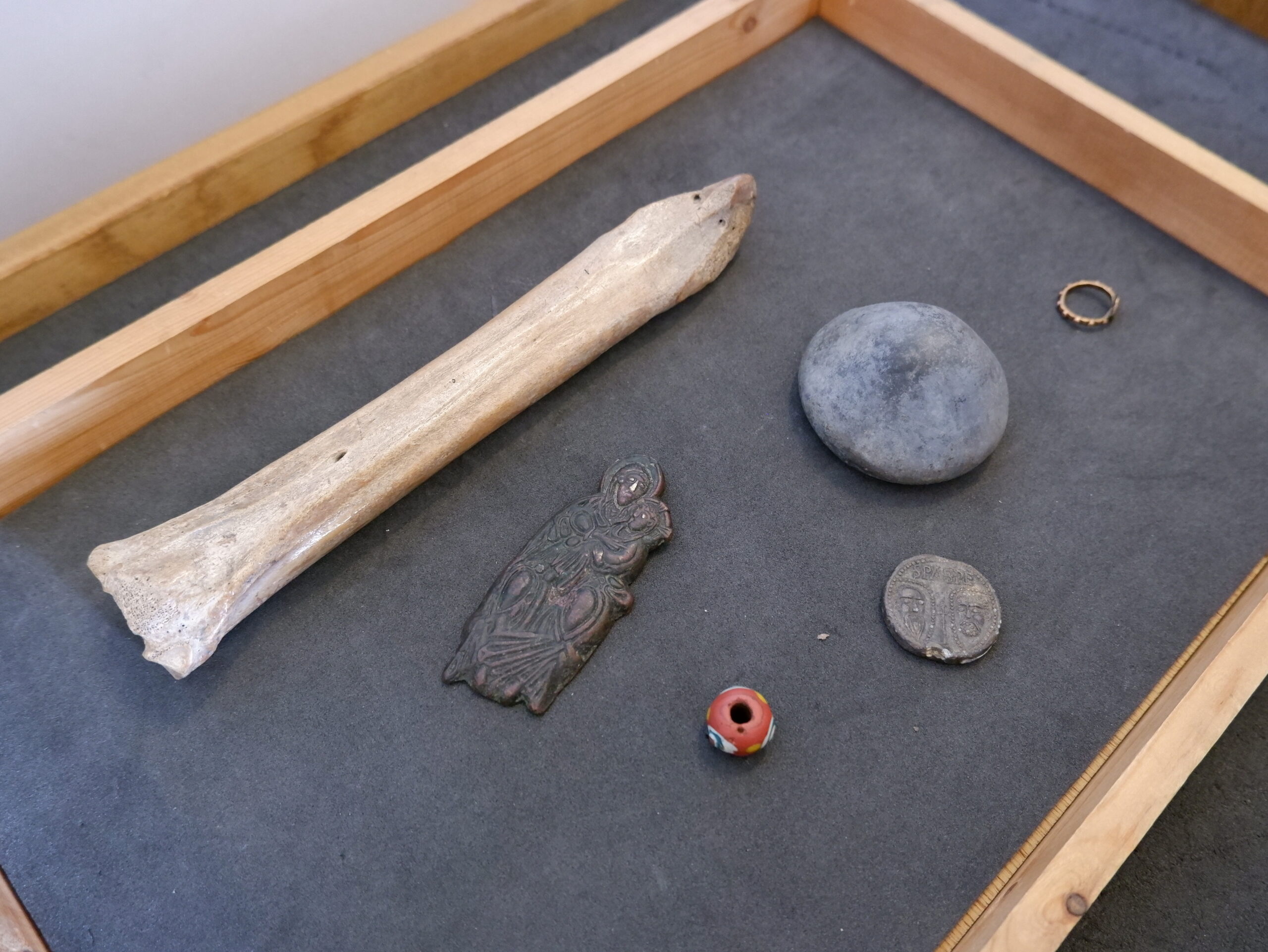
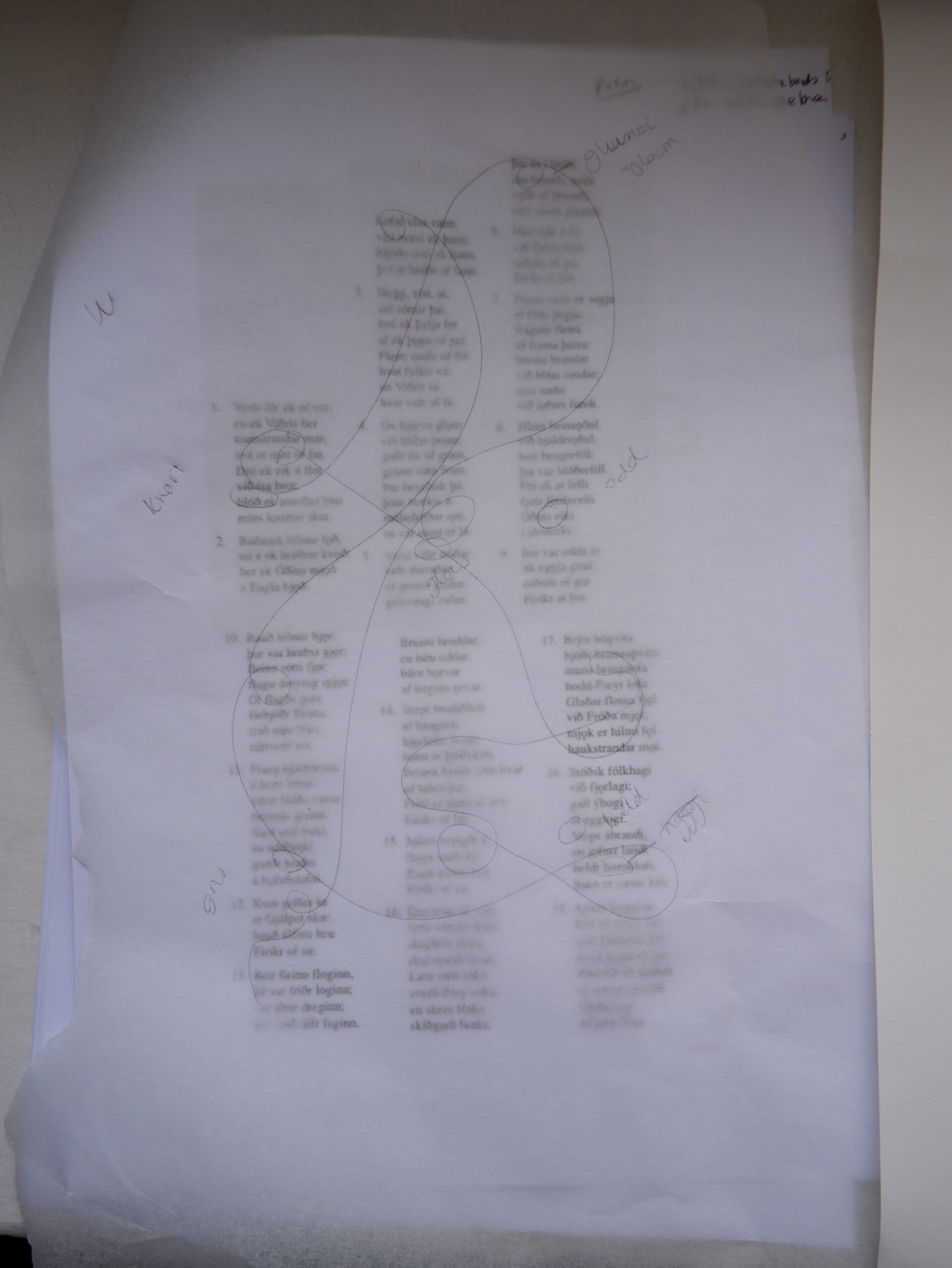
A feedback form at the end invited participants to reflect upon their experiences, and whether their perceptions of York had been altered in any way. Many commented that the workshop had deepened their knowledge and appreciation for the city, and the value that its history provides, as well as suggesting points for further research. One attendee mused that it had helped them to “appreciate the normal lives of the medieval past”, making it more accessible, while another remarked how York is a heavenly city “not because it’s filled with shiny, new stones, but the opposite”. In general, feedback celebrated the tour and workshop as fun, engaging and collaborative, and commented on the imaginative nature of the activities.
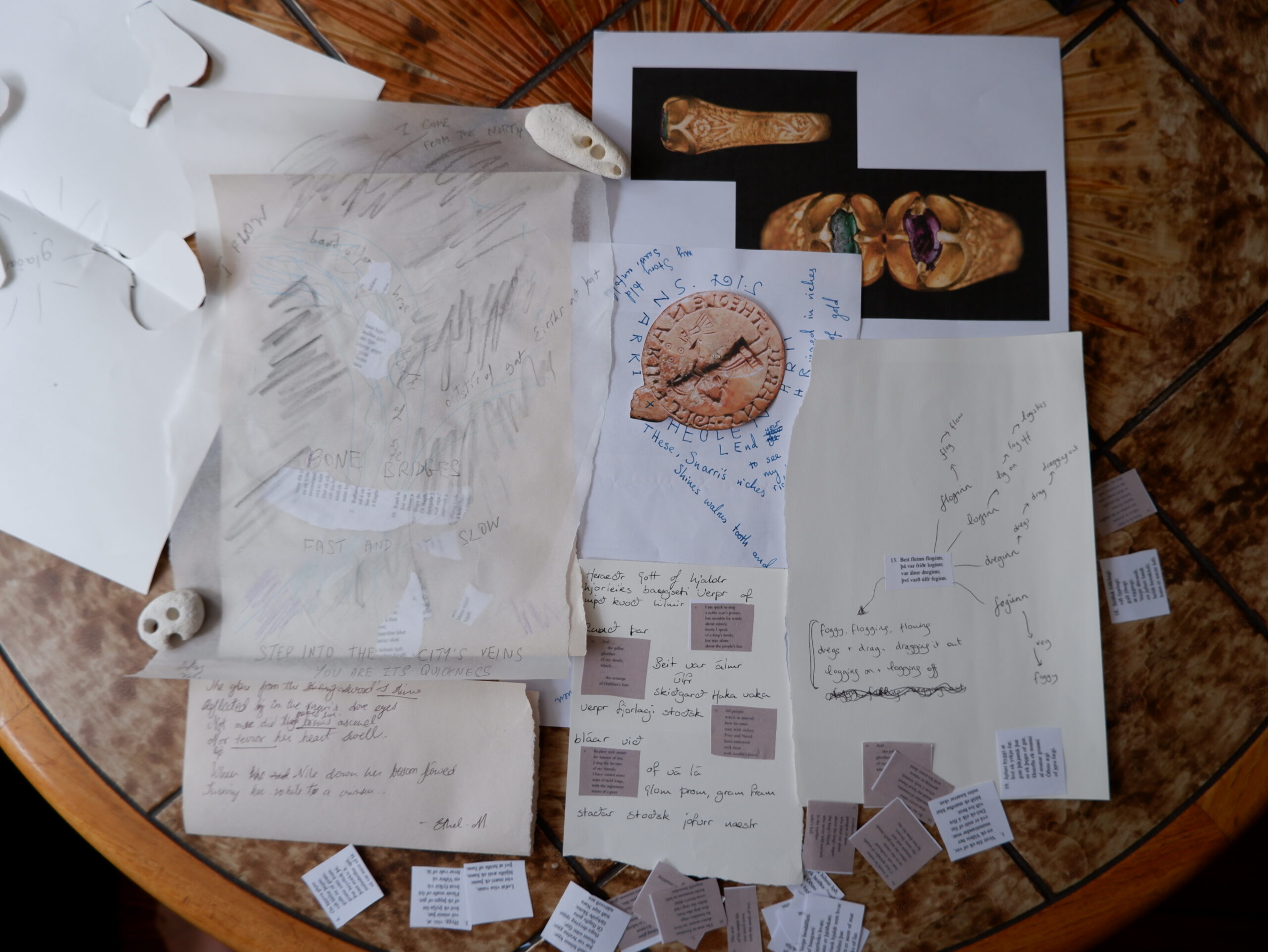
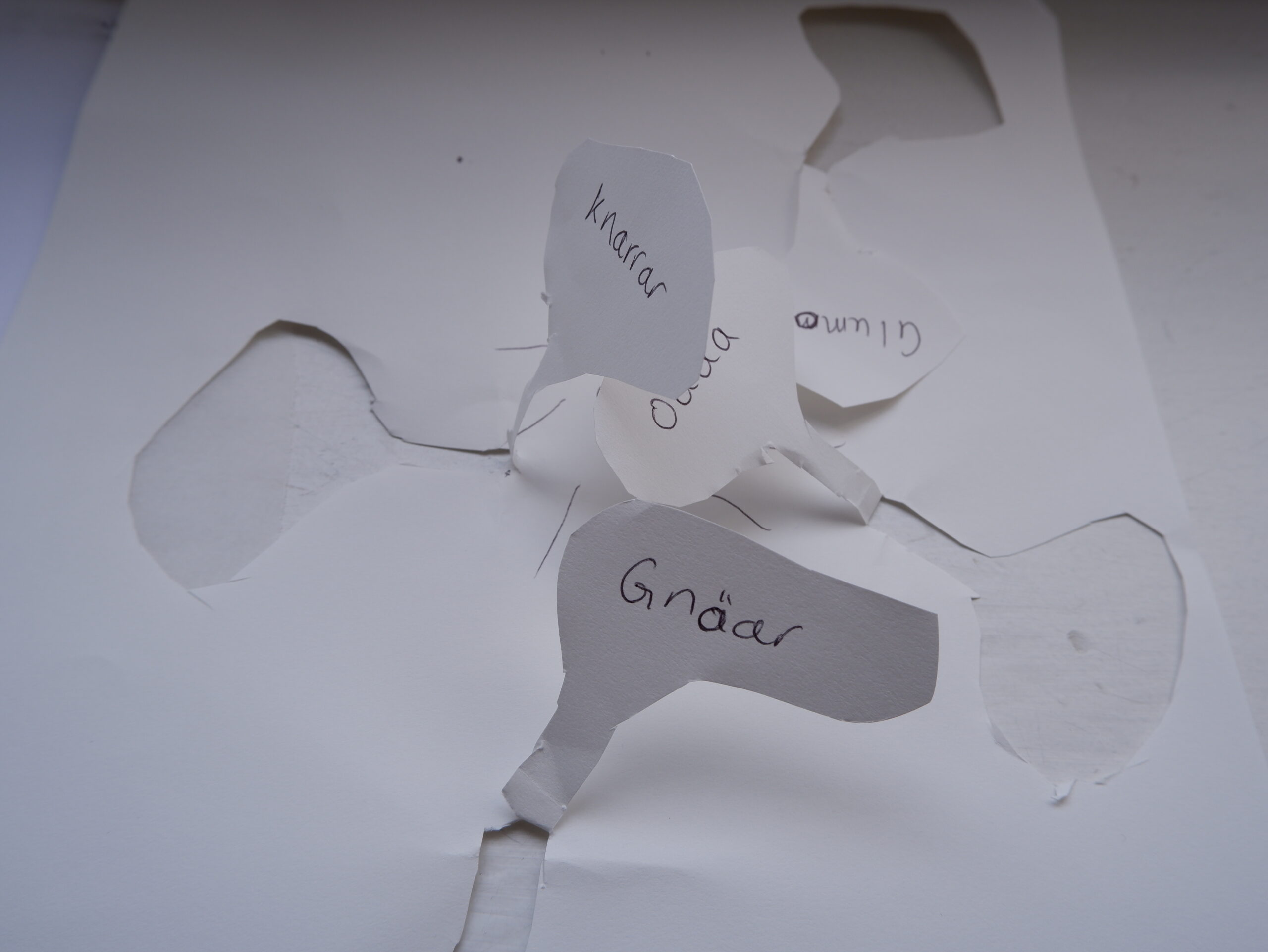
This workshop culminated in fascinating conversations about the history of York and how we can take this understanding into our perceptions of the modern city, as well as producing many beautiful fragments of poetry written by our attendees. Some of these images and lines have been combined into a collaborative poem, which we will leave you with:
Dark jewels and a field of teeth.
Golden I lie, God-bound in image;
tossed about bubbling blue eye.
Given in love
and discarded in hate,
quick to sing, a stumble for words –
for I am bearer of lies with the intent
of a poet.
A maze without door
a world without breath
a voice without sound
I ventured my poem to the king.
Into the golden chamber,
quick to sing,
a stumble for words
hung above my head.
Silent and glowing sat the ruler.
I am lost, I am found:
what flows like water and freezes like ice?
The thread, my long-strung secret
locked inside.
Darker than sea
and fairer than bone,
lighter than autumn leaf
and heavier than stone.
I come from the North.
People of the past
paid toward a legacy.
They galloped; we glide.
Relics, losing, burying.
A memory.
A gift to us.
With thanks to the creativity of all our participants and the generosity of the Yorkshire Museum for hosting us. This event was supported by the ‘What makes a place good to live in?’ fund and the Research Champions at the University of York. The event forms part of the Leverhulme Trust funded project ‘Divine Abstraction: Medieval Modern Networks of Faith and Culture’ led by Francesca Brooks.

